
43 minute read
Soul enterprise


Advertisement

Third-grader aids Malala fund
Building truth muscles
Telling the truth may be one of the most persistent bugaboos of business. It’s a habit that can be built up, like a muscle.
It’s not only good Christian behavior, it’s also good business, says Ken Byler of Higher Ground Consulting Group in Souderton, Pa.
Some time ago Byler led a MEDA convention seminar on Truth-telling: The Hidden Profi t Booster. He suggested ways to make honesty a workplace habit. • Write a list of positive things you believe could happen if you tell the truth; write a second list of positive things you believe could happen if you withhold the truth. • List the possible negative consequences of telling the truth and of withholding the truth. • Review your lists and rate the likelihood of each thing happening. • Name who or what is being protected if you don’t tell the truth (you, family, boss, co-worker, project). • What harm will likely occur to whomever or whatever you are trying to protect if you do not tell the truth? • If you choose not to tell the truth, what will you need to do to assuage your conscience?
By telling the truth in even the smallest things “you get practice which can pay off when telling the truth is really hard,” he said.
Excerpted from You’re Hired! Looking for work in all the right places, a career guide from MEDA. Available for free download at www.meda.org How old do you have to be to assist a global cause?
For Alliana Rempel of Winnipeg, eight years is enough.
Alliana is the granddaughter of MEDA board member Peter Dueck and his wife Trudy, who were involved with MEDA’s recent convention in Winnipeg. Her mother, Carissa Rempel (the Duecks’ daughter) attended the keynote Alliana Rempel: “Together we can make things beautiful.” speech by Ziauddin Yousafzai, father of teenage education activist and Nobel Prize winner Malala Yousafzai. Carissa purchased a copy of the memoir, I Am Malala, which tells the story of surviving being shot in the face for protesting the Taliban’s limitation of education for Pakistani girls.
“Alliana saw that I was reading it at home and knew where I had been and was interested so she asked if she could read the book too,” says Carissa.
Alliana, though only eight and in third grade, became so inspired by the book that she devised her own way to support Malala’s campaign for education.
“From reading the book, I realized that lots of girls don’t get to go to school,” says Alliana, who was recently featured on Malala’s website. “I wanted to help, so I drew a picture of a butterfl y because it is a symbol of hope and change. I added words like ‘education’ and ‘peace’ to the butterfl y’s wings so everyone will be reminded of the changes we need to make so that all children can have these things.”
Alliana began to sell prints of her artwork to raise money for Malala’s fund. She called her project Battle The Bad With Beauty. After being featured on Malala’s site she has sold to fi ve countries around the world and is now half-way to her goal of raising $2,000.
“Across the world many children never get to go to school,” says Alliana. “I want to help change that by raising money for the Malala Fund. Together we can make things beautiful. And if we work hard enough, we can overcome the bad with beauty.”
To learn more about Alliana’s efforts to help the Malala Fund visit her website at www.battlebadwithbeauty.wix.com/battlebadwithbeauty.
Service with a clean plate
Writer Philip Yancey (one-time MEDA keynote speaker) visited an eatery in Lima, Peru, run by an order of Christian women who feel called to serve through a restaurant business. As he relates in his new book, Vanishing Grace: What Ever Happened to the Good News?, he was intrigued by their mission and their name, Agua Viva which means “living water” in English. There he enjoyed “among the best meals I’ve ever eaten” and at “a very modest price.” He was struck, too, by the diligence of the staff who after-hours serve poor mothers from Lima’s slums with classes on hygiene, child-raising and physical and spiritual health.
“Only a few clues betray the restaurant’s spiritual roots,” writes Yancey. “The inside cover of the menu proclaims ‘Jesus lives! For this we are happy.’ And at a certain time each evening the waitresses appear together to sing a vespers hymn for their patrons. Besides these clues, said the manager, the work itself should stand as a witness. ‘Don’t ask us how our prayer life is going; look at our food. Is your plate clean and artfully arranged? Does your server treat you with kindness and love? Do you experience serenity here? If so, then we are serving God.’”


Joy of time management

Greg was whistling as he headed into the end-of-day traffi c gridlock, normally his least enjoyable part of the day. When someone cut him off rudely, he just smiled. A few blocks later cars were lined up to get into his lane. He slowed to let them in.
He wasn’t always that polite. Why, he wondered, was today different?
A few lights later it dawned on him. He was in a good mood because he had fi nally fi nished a thorny project that had nagged him for weeks. And his fellow drivers on the trek home were benefi tting from his buoyant spirits.
How had he triumphed over his procrastination? Greg realized it had taken a determined effort to apply some lessons from a recent time management seminar he had attended. He had resisted using them at fi rst, but when his usual tricks-to-get-started didn’t work, he turned in desperation to his seminar syllabus.
Interesting, he thought. Simple workplace principles had raised his spirits for the whole day... and had even benefi tted his fellow drivers in rush hour.
From now on he would look at time management as a lever for social betterment, maybe even as a peacemaking ploy, not to mention as “I don’t pay good wages because I a boost for his career. Overheard: have a lot of money; I have a lot of money because I pay good wages.” — Robert Bosch
Business by-product
“Lifting people out of poverty was never the conscious intention of business; it was the by-product of a business well-enacted. Now business is awakening to itself and becoming conscious. It is recognizing that it is a force with enormous power and responsibility. By becoming conscious, it can do what it does even better. It can create more community, more mutuality, and paradoxically, more profi t, by engaging everyone in the system.” — Marc Gafni, cofounder and director of the Center for World Spirituality
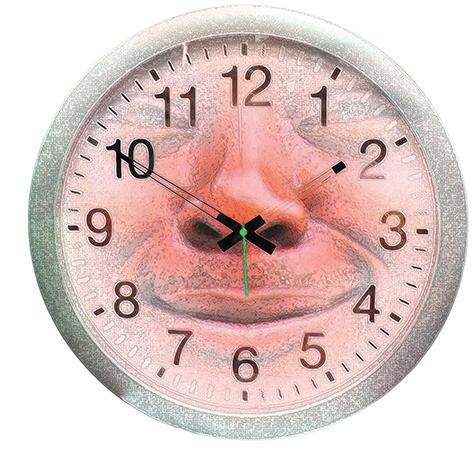
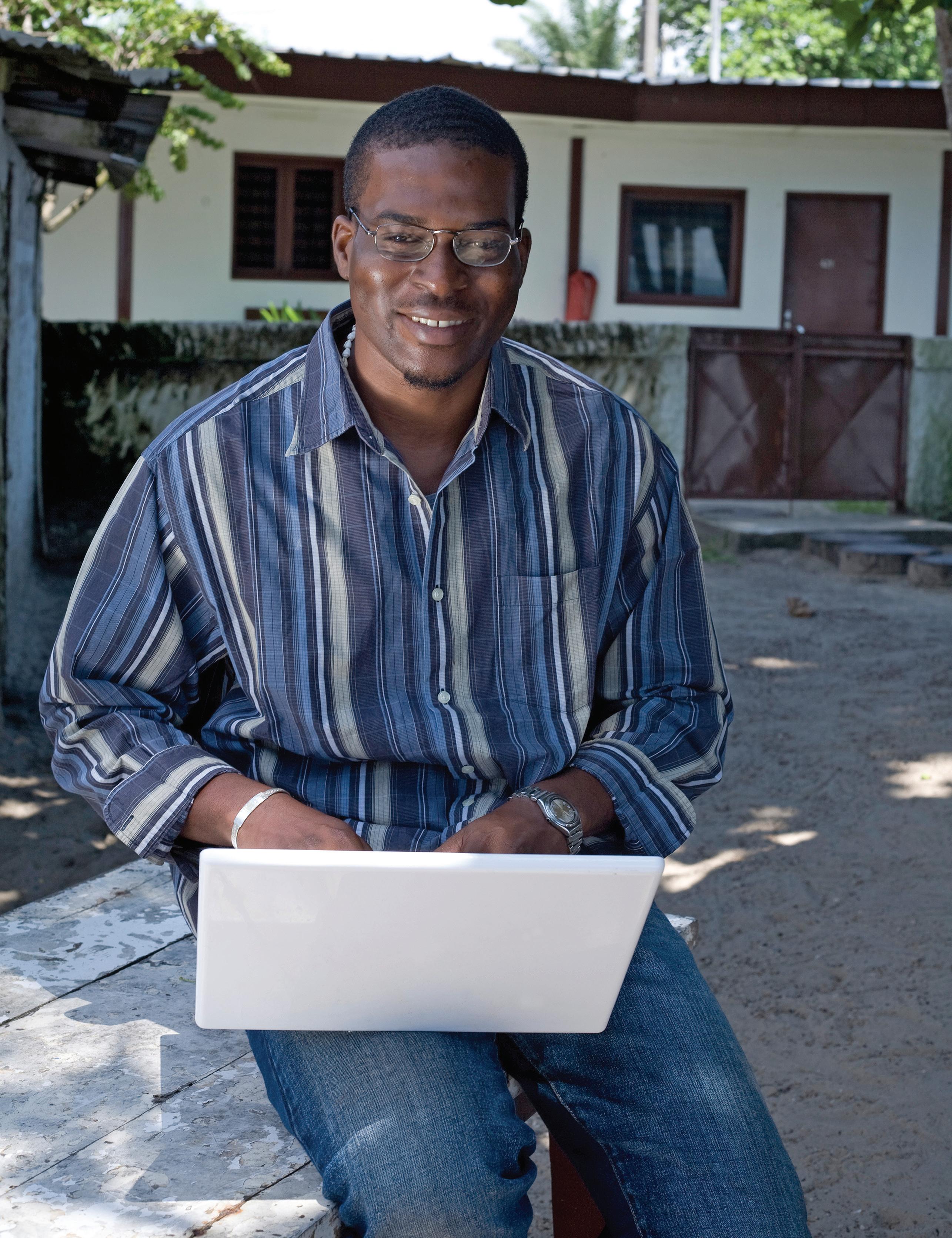
A happier face of Nigeria
New project aims to boost business and job prospects for 7,000 youth
While Nigeria has been getting its share of terror-related headlines, positive activity is underway elsewhere in the African country. MEDA recently inked a deal to improve financial access and services to Nigerian youth in a collaborative venture with Cuso International, a Canadian service agency.
MEDA has not shied away from global hotspots, having worked recently in Afghanistan, Yemen, Libya, Pakistan and Egypt. In this case, says Jennifer Denomy, MEDA’s Director of Youth Economic Opportunities, the project “is — and we hope remains — a safe distance away” from the ongoing violence. It is located in Cross River State in the southern part of the country, while the infamous Boko Haram is active in the northeast.
The project, funded by the Canadian government, aims to promote youth employment and entrepreneurship in natural resources sectors in Nigeria. The full name of the venture, which began in late 2014 and runs to 2018, is Youth Leadership, Entrepreneurship, Access and Development Project (YouLead).
YouLead will promote economic prosperity for 7,000 young women and men (ages 18-35) by supporting growth in the small business sector, and providing skills training, tools and access to finance for young workers and young adult entrepreneurs. It will increase the participation of young people in entrepreneurship and economic activities in targeted natural resources, such as agriculture, aquaculture, forestry and eco-tourism in Cross River State.
Specifically, the project calls for 5,000 youth to establish and/ or strengthen micro and small-scale businesses, and an additional 2,000 youth to gain employment in natural resource sectors.
Cuso International will be responsible for overall implementation including skills and entrepreneurship estimated 74.5 million young people were unemployed, three times the number of unemployed adults. Nigeria, Africa’s most populous country, has an adult unemployment rate of some 20 percent, with youth unemployment (defined by the Nigerian government as 18 to 35 years) almost double at 35 percent.
Some 21 percent of youth in Nigeria have an account at a formal financial institution, slightly more than the sub-Saharan average of 17 percent. However, this trend is reversed when it comes to access to credit: only 2.1 percent of all adults in Nigeria, compared to 4.7 percent in sub-Saharan Africa, have taken a loan from a financial institution.
Cross River State has a rich ecosystem that is under increasing pressure as growing populations derive their livelihoods from its natural resources. Youth constitute 1.1 million of its 3.45 million residents, of which 40-50 percent are unemployed or under-employed
YouLead sees the need for youth to have a safe place to save and to have access to appropriately structured loans. These can serve as stepping stones on their path to entrepreneurship, career development, and/ or financial independence. MEDA’s work will improve the capacity of financial service providers to respond to the financial needs of youth by developing gender-responsive and environmentally-responsible financial services and products for young women and men. ◆
A third of young people are jobless; a scant two percent manage to get loans
training for youth. The MEDA component, worth almost $900,000, will handle financial services and better financial inclusion for youth. It is expected that by the time the project reaches completion five financial service providers in the region will be offering youth-oriented products and services.
Denomy says the problem of economic opportunity for young people is acute throughout the developing world, with millions struggling to break into the labor force and build a life for themselves. In 2013, an
Young man on the go
With business interests around the world, it’s easy to see why Peter Miller was chosen as a “20 under 35” honoree
by Don Dodson
Peter Miller is only 29, but already he has had business dealings in Ukraine, Romania and Ethiopia and held two jobs in Jerusalem.
Miller, who is working on a master’s degree in business administration at the University of Illinois, is executive vice president of Equipment Direct West, an agricultural equipment export company based in Arcola, Ill., and founded by Wilmer Otto.
But that’s not his only business involvement.
In the past year, Miller and a business partner have started a small residential subdivision in Romania. Miller is also a co-owner of Agro Capital Management (formerly owned by MEDA), a business that leases equipment such as rotary tillers and greenhouses to small farmers in Ukraine.
Plus, he will serve as chairman of the board this year for the Ten Thousand Villages shop in Champaign, Ill., which sells fair-trade items from artisans from 35 countries around the world.
In November, Miller was honored by Mennonite Economic Development Associates as one of 20 people under age 35 for making a difference in the world — and exemplifying faith, service and an entrepreneurial spirit.
As his resume suggests,
he’s very much on the go.
“In 2014, I visited maybe nine different countries.... For business-related things, I probably spend a week a month traveling,” Miller said.
Most of the ventures he’s involved in are designed to help people in other countries better themselves.
“Something that underpins most of our business is interest in seeing sustainable economies built from the ground up,” Miller said.
“With the real estate development in Romania, we’re trying to get starter homes going, and we’re trying to employ Roma laborers as much as we can in construction work,” he said.
“In Ukraine, our target market is really small farmers,” he said. “With small farmers in Ukraine, we have more flexibility than banks do in how we structure the equipment leasing. Banks and other financial inwheat and soybeans.
After high school, Miller took a “gap year” before college, to work on a farm in Germany that grew sugar beets, potatoes and onions.
“I knew I wanted to learn another language and travel the world,” he said.
Miller then returned to the U.S. to attend Bethel College in North Newton, Kan., with thoughts of becoming a lawyer.
But an opportunity in Jerusalem gave him a burgeoning interest in economic development and international business.
That opportunity was a twoyear job with the Mennonite Central Committee, in which he worked with a partner organization to introduce tourists to the Palestinian Christian community in and around Jerusalem.
Miller then took a job with the Lutheran World Federation in Jerusalem, heading up the annual olive harvest on the Mount of Olives.
The 800 trees there are harvested by hand, and the olives are pressed to make oil sold around the world as a fundraiser for the federation’s Augusta Victoria Hospital.
“Each year, they bring someone on to spend three months coordinating the harvest, pruning the trees and coordinating volunteer groups,” he said. “Often tour groups want to take part in the olive harvest.”
Prior to taking the Lutheran World Federation job, Miller met Wilmer Otto through a mutual friend who thought they would be a good fit.
As a result of that, Miller flew from Tel Aviv to Ethiopia on his first
An underpinning goal — seeing sustainable economies built from the ground up
stitutions have to structure the leases with regular same-sized payments every month. We can tailor them to the individual.”
That way, farmers can make smaller payments during the growing season and larger payments after harvest.
Miller, who lives in Champaign, grew up near Hutchinson, Kan., a member of a Mennonite family. His grandfather was a full-time farmer, and Miller’s father continues to operate the farm part time, growing corn,
Photo by John Dixon/The News-Gazette
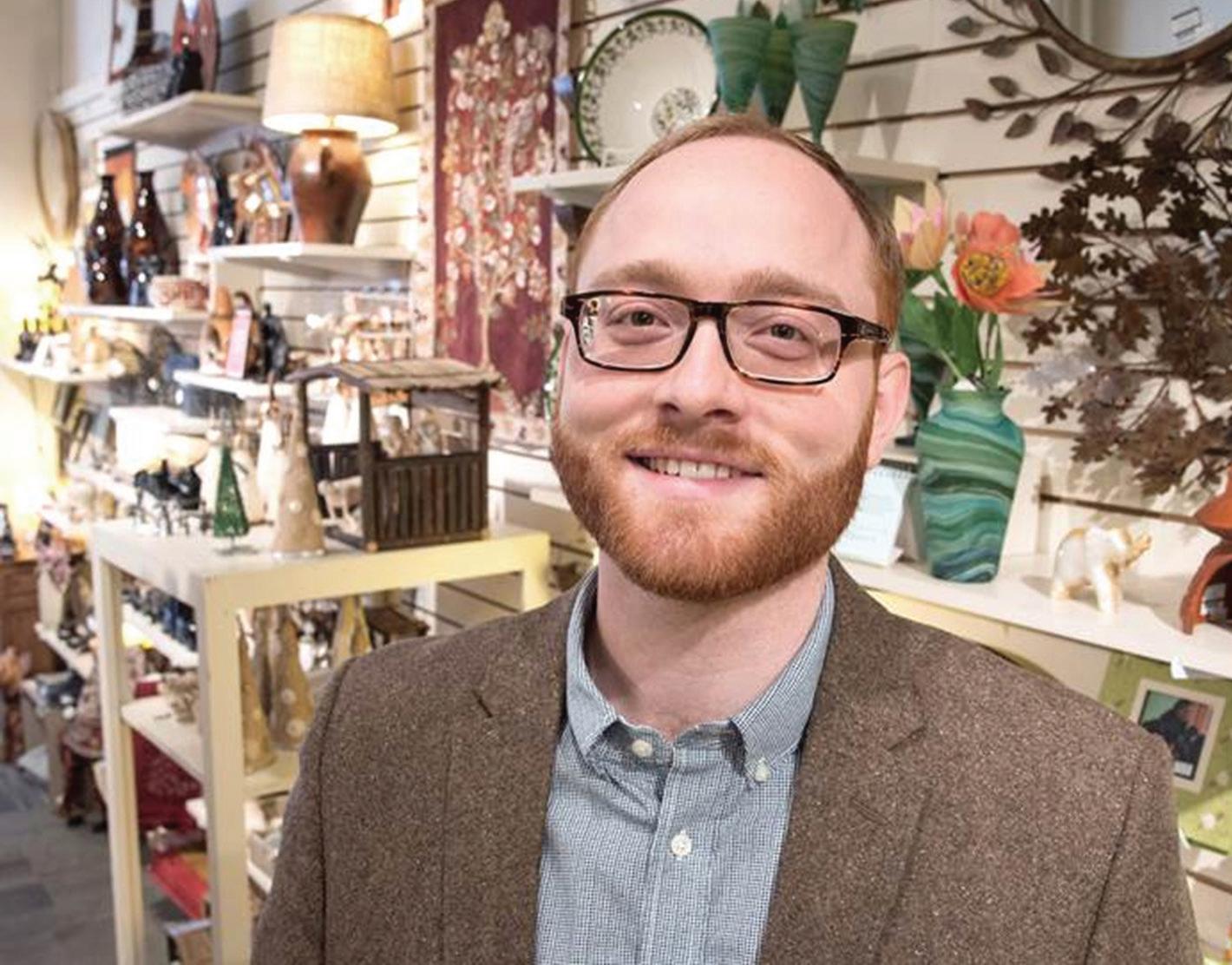
Peter Miller at the Ten Thousand Villages store in Champaign, Ill., where he will serve as chair of the board this year.
business trip for Otto. In Ethiopia, he met with cotton growers interested in improving mechanization of their farms.
“To this day, they still harvest most of their cotton by hand, so someone with a 2,000-acre cotton farm is bringing in seasonal workers, 4,000 to 5,000 at a time,” he said.
But without mechanization, they weren’t growing as much cotton as they would like, he said.
Later, Otto hired Miller at Equipment Direct West. That company had been actively conducting business in Ukraine and other parts of the world.
“We had been selling used Illinois farm equipment to Ukraine for the last 10 years,” Miller said. “That market has dried up since 2009. We have changed the business model since that time.”
In July 2014, they acquired majority ownership of an equipment leasing company in Ukraine — Agro Capital Management, which sells equipment to small-scale farmers growing fruits and vegetables for sale in Ukrainian cities and also for exporters. “A large number of clients are women, and for most of them, it is a primary source of income,” he said. The enterprise had been located in Crimea and southern Ukraine, but with Russia’s takeover of Crimea, the
A recent acquisition — an equipment-leasing company started by MEDA in Ukraine
company moved to central Ukraine.
In Romania, Otto operates a fourstar hotel in Sighisoara, a city in the Transylvanian area of Romania and also has a construction company and other real estate projects there.
Miller said he too has a real estate project there, having developed with a business partner a six-home subdivision close to the center of town.
The subdivision is composed of “small efficient homes for first-time homebuyers — two-bedroom and starter homes,” he said.
Equipment Direct West also
exports equipment to the east African countries of Tanzania, Mozambique and Ethiopia.
“Most of our work we do in collaboration with local partners, so I never feel too uncomfortable,” Miller said. “I can’t think of any country where we work where we don’t have a local partner we trust completely.”
In addition to speaking English, Miller speaks “conversational German and can be polite in Arabic.”
Despite recent violence in the Middle East, Miller said he would “absolutely” like to visit the region again.
“I love the Middle East and would love to find a way to somehow do business there,” he said. “It’s such a vibrant place. The mix of cultures is fascinating to me.”
He works from Champaign one day a week, but otherwise commutes to Arcola. To communicate with business partners overseas, “we rely on Skype quite a bit,” he said.
Miller entered the University of Illinois’ MBA program in January 2013 on the recommendation of a friend and hopes to finish up the degree in May.
“I’ve developed some nice relationships with professors, and a couple have provided great advice on specific business deals I’ve been evaluating,” Miller said.
He accompanied the class to India during spring break last year, where students got exposure to agriculture there.
Miller said his brother, John, took a financial planning job in Champaign, so they are roommates for now. Miller also gave his family a glimpse of his overseas experience.
“I hosted my siblings and their spouses and our parents for a trip to Romania in August. They traveled around, checked out Transylvania and the northern part of the country and had a great time,” he said. ◆
Reproduced by permission of The News-Gazette, Inc. Permission does not imply endorsement.
Enlist your church
Does your congregation need help to breathe new life into daily work?

Being faithful at work can be a challenge. Don’t go it alone. Fellowship helps — with friends, co-workers and your church.
“The difference between doing God’s will in the workplace and turning work into an idol is so small that you have to check yourself almost every day,” says Dennis Bakke, former CEO of AES Corporation. “We need to be in the Scriptures regularly and to have people to whom we are accountable. We need to be part of a church fellowship that calls us back to a focus on Jesus Christ.”
How do you do this?
Look for a mentor, a seasoned person you look up to. Ask this person if you could meet at a coffee shop every few months to touch base. Chances are they’ll be honored to serve as your external encourager and reality check.
Search out a peer or affi nity group, or start one yourself.
How about your church? Many churches need a little help on this score, especially if they can’t see beyond the “church gathered,” in which most spiritual activity is confi ned to the boundaries of the congregation or denomination. Few have a wide vision for the “church dispersed” — the church in daily action through the work of its members. Yours may be an exception, but if not, maybe you can be an instrument of change.
Most churches welcome
new ideas (even if their staff is too overworked to implement them). You may have to do the grunt work yourself, at least until others catch the vision that churches expand their reach when they validate, affi rm and celebrate the Monday-to-Friday activities of their members. The church can breathe new life into daily work — even into whole careers — by helping members reclaim the work week for God.
Some pastors are a bit apprehensive about promoting “workplace ministry” because they fear it will distract members from congregational participation. There’s evidence to suggest that the opposite is true. William Diehl, author of The Monday Connection, conducted an extensive survey of his denomination and found that members who saw their daily work as Christian service tended also to be stronger fi nancial contributors and participants in other congregational activities.
Here are some suggestions. • Invite your pastor to join you at work for lunch or coffee. Share your challenges. He/she might use this in preaching or elsewhere, and you’ll fi nd your circle of support widen. That sends a signal that this part of life is important to the church leadership. Pastors who do this gain tremendous insights (and great sermon illustrations) into the habitat where members spend so much time. • Suggest a series of short “workplace testimonies” at church where selected members explain “What I do for a living. What are the issues I face as I try to connect Sunday and Monday. What difference does my faith make in how I deal with these issues.” It will be illuminating for the congregation, as well as a wonderful opportunity for the speakers themselves to clarify in their own minds
One church invited members to show up in work garb — electricians, nurses, auto mechanics, janitors and a chef.
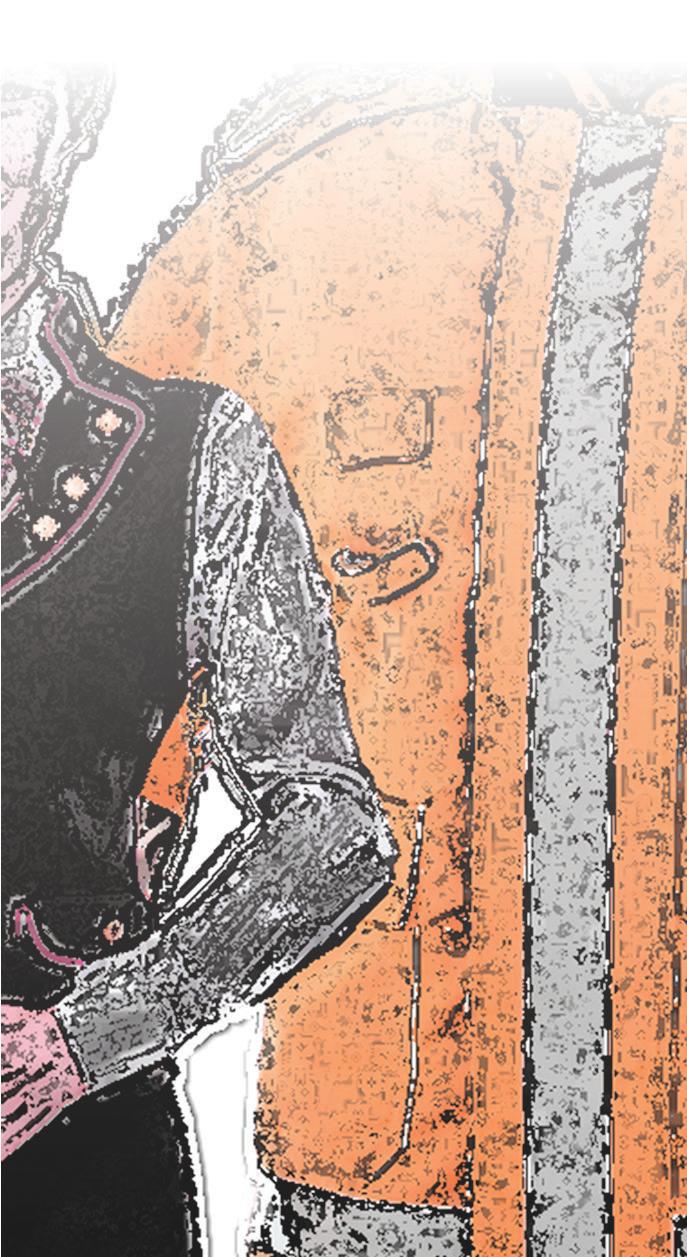

how their faith impacts their work. • Suggest sermons on biblical workers (Lydia in the clothing trade, Joseph in civil service, Nehemiah in construction, Jacob in agribusiness, Matthew in fi nance, etc.). • Many churches commission people for mission work or voluntary service. Why not suggest to your leadership that you have a commissioning or affi rmation service for Fred the fi refi ghter, Theresa the teacher, Sally the social worker, or any certifi ed public accountants in your congregation around tax time. • Volunteer to lead a Sunday school class on the theme of work. Use resources like Faith Dilemmas for Marketplace Christians, [available on MEDA’s web site: www.meda. org] which is designed for a 13-week quarter. People will be delighted by the chance to talk about their work in the context of the church. • Church newsletters can feature members’ jobs. A photographer in the church can take shots of members at work (or of where retired members used to work) and mount them on a display titled “Our dispersed church.” Or how about a map of your community with colored pushpins showing where members work and spend their days. It could be a dramatic reminder of the reach of your congregation from Monday to Friday. • Communicate news about members’ promotions, awards and job changes. • Work strikes a responsive chord in worship planning (and not just for Labor Day weekend). One medical technicians, a chef, even a Home Hardware clerk with a loud red jacket. When everyone stood together it was a dramatic illustration of the diverse cultures which the congregation’s infl uence penetrated every week. • Use “tools of the trade” for a worship display, or a showcase of goods and services put forth by members during the week. • Equip the church library with literature on faith and work connections. • Suggest special events about work and faith (bring-your-boss or co-worker to church). • Even the benediction can send an important signal. One church does it this way: “Sisters and brothers in Christ, we are NOT dismissed; we are NOT just free to go — Christ sends us. Go forth into the world in the power of the Spirit; go to help and heal in all that you do.” • Another church has a sign posted over the main exit door that says “Service Entrance.” But it’s posted on the inside, not the outside. That way it’s the last thing worshippers see as they leave the auditorium, reminding them that as they leave worship they are heading out into the world where they will spend the next week as ministers.
These are a few things you can try to help your church become an ally in breathing spiritual life into your daily work — and its own. ◆
church invited members to show up one Sunday in work garb. The array of uniforms was quite a sight — electricians, nurses, auto mechanics,
How weird is this — bring-your-coworkerto-church Sunday?

Excerpted from You’re Hired! Looking for work in all the right places, a career guide from MEDA. Available for free download at www. meda.org
The Faith@Work game
A new way to put fun into being faithful on the job
You look forward to Monday morning MOVE AHEAD 1 SPACE You read The Marketplace cover-to-cover MOVE AHEAD 1 SPACE
DIRECTIONS

Each player should fi nd a small playing token (such as a button or an uncooked bean) and place it at START. Players advance by fl ipping a coin — “heads” means move forward two, “tails” one.
Each square describes an action the player supposedly has done (at least for the purpose of this game) and includes a consequence of that action (positive or negative). When a player lands on a square, he/she should read the “action” aloud, then obey the consequential directive. When the player has obeyed that command, the turn is completed. The player is not responsible for the action or consequence of the new square.
Players may discover that the game never really ends. Entering the fi nal circle is an ongoing process. You invited a young staff member to accompany you to the MEDA convention TAKE ANOTHER TURN You attended this year’s MEDA convention TAKE ANOTHER TURN

One of your offshore suppliers is accused of a human rights violation MOVE BACK 1 SPACE You overhear an employee say your fi rm is “family-friendly” MOVE AHEAD 2 SPACES You want your business to serve society, not just make profi t MOVE AHEAD 1 SPACE
You agreed to lead a Sunday school series on the theme of work
MOVE AHEAD 2 SPACES
A survey shows your wage scale is well below the industry average for your area MOVE BACK 1 SPACE Your pastor asks to visit you at the offi ce. If this makes you pop a Rolaids then MISS A TURN You display a copy of The Marketplace in your offi ce reception area MOVE AHEAD 1 SPACE
You panic when a government safety inspector shows up at your factory MOVE BACK 2 SPACES
You recruited church members to present “workplace testimonies” in church MOVE AHEAD 2 SPACES You see a recruiting leaflet from an aggressive labor union lying around the cafeteria MOVE BACK 2 SPACES
You describe yourself as God’s junior partner in sustaining creationMOVE AHEAD 1 SPACE
You try to help employees see their work as a callingMOVE AHEAD 3 SPACES You see your work as part of God’s mission in the world MOVE AHEAD 2 SPACES A news reporter calls for an interview and you’re not sure whether to be nervous or pleased MISS A TURN WHILE YOU MAKE UP YOUR MIND

You helped cool a dispute between middle managers, earning you the name “office peacemaker” MOVE AHEAD 2 SPACES You see key staffers reading What Color Is Your Parachute? MOVE BACK 1 SPACE
You urged your pastor to hold a commissioning service for those who work at daily jobs ADVANCE TO END
Congratulations on making strides to integrate your faith and your work!
Our thanks to the original designer of the game concept, Don Ratzlaff, then associate editor of The Christian Leader.
What is impact investing?
The goal is to deliver strong ethical, social and environmental outcomes without sacrificing profit.
MEDA and its affiliate, Sarona Asset Management, is often identified as a global leader in “impact investing.” What does that mean? JP Morgan defines it as investments that generate a positive impact alongside a financial return. The Global Impact Investing Network (GIIN) defines it as investments that aim to generate measurable social and environmental impact alongside a financial return. Gerhard Pries (CEO of Sarona Asset Management) and Katie Turner (MEDA senior project manager) fleshed out those definitions at the recent MEDA Convention in Winnipeg. They described MEDA-related “frontier” investments in several small and medium-sized companies that earn a profit while performing an important social function. Here is an abridged version of their comments:
In Paraguay, 60 years ago, MEDA invested in a company called the Sarona Dairy. The dairy supplied milk to many families but wanted to improve production. It needed better breeding stock, better feed and better processing facilities.
Other development agencies at the time provided advice, technology and seeds to poor farmers. But Sarona Dairy was a business, and development agencies didn’t work with businesses.
MEDA came into being as a private investment company to help struggling companies like Sarona. It wanted to help this small dairy company grow, create jobs and deliver more milk to more people at better prices. But it did not think it had to forgo profit to do this. The investment it made turned out to be highly successful on both fronts. Not only was it profitable, it also helped spawn a dairy industry in Paraguay that eventually supplied more than 70% of the country’s milk.
And because MEDA did that, and

Where it started: The gate to the first MEDA investment in Paraguay.
continued to do so over the next 60 years, JP Morgan recently named MEDA and its child, Sarona Asset Management, as the oldest impact investment firm in the world.
In Nicaragua, MiCrédito
is a microfinance institution that provides improved financial services to urban and rural markets. Many of you will be familiar with MiCrédito as an investment of MEDA’s Sarona Risk Capital Fund. Since 2004, when
See full presentation
To watch the full video of this and other presentations go to http://www.meda.org/past-conventions/convention-2014-videos
the institution started, MEDA has supported them through board presence, as well as technical assistance to improve the types of products and services they offer their clients.
MiCrédito now serves approximately 4,500 clients, with an average loan size of $918 and a portfolio of $4 million. One of its clients is Roberto, a 34-year-old farmer in the town of Estelí. Roberto is married and has three children. He has a fourth grade education. He began learning to farm at an early age from his father. Over time, he used his earnings from selling vegetables to buy his own land. Roberto currently grows vegetables and raises cattle.
Roberto received a loan of $800 from MiCrédito to buy two heifers which has allowed him to improve his milk sales. With this extra income, Roberto is saving for his children’s education so that they can become professionals and move forward.
In 2012, one of our Sarona
Funds invested in Khyati Foods Ltd. in India. Khyati Foods is a private company that processes organic soybeans and cotton. We were keenly interested in the company because it was both profitable and had high social and environmental value.
Khyati Foods buys all of its produce — the soybeans and cotton — from 10,000 smallholder farmers, each of which have only a few acres of land. The company has worked with each of these 10,000 farmers for a minimum of three years to help them become internationally certified as organic. By purchasing from these smallholder farmers, Khyati is boosting their family income and getting their products into international markets. Khyati processes the products and then sells 90% to export markets in Europe and USA. • We like the company because it is profitable. • We like the company because it supports a lot of poor farm families. • And we like the company because, by working only with organic produce, it enhances the environmental footprint of farming in India.
A few years ago, one of Saro-
na’s local partners invested in ODG, a company in Indonesia that provides mechanical, electrical and fire safety services to its clients, many of whom are large mining companies. This type of company may not be the first thing that comes to mind when you think of an impact investment, but ODG has carved out an impressive reputation based on solid financial performance, strong social and environmental policies, and a concern for the health and safety of employees.
ODG’s core values are integrity, accountability, excellence and teamwork. The company has 281 full-time permanent employees, 415 contract staff and 20 expatriate staff. They provide strong career opportunities, which has resulted in an annual turnover of only 3% since 2011. Their CFO concedes that they are more
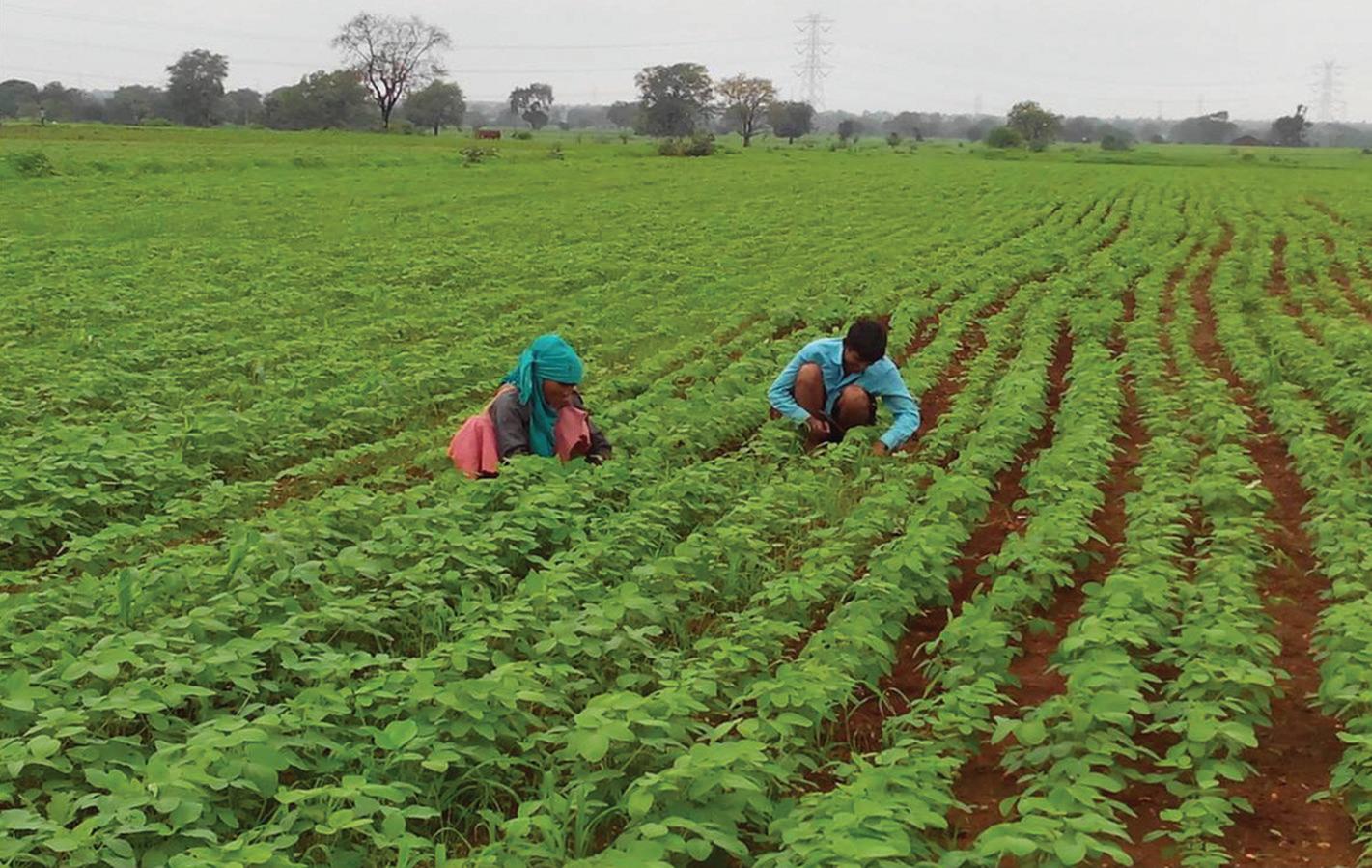
India’s Khyati Foods helps 10,000 smallholder soybean and cotton producers to achieve organic certification.
Potential buyers are looking for clean, progressively-run companies.... Our portfolio handily out- performs the S&P 500.
expensive than other companies but their clients value the high quality of their work and are very loyal to them. ODG provides extensive training on health and safety to employees, and as a result has not had an accident in 27 years. They have won numerous awards for safety and are recognized in the industry for their commitment to this.
In Brazil, one of Sarona’s local partners invested in Digipix, an electronic photography service. You’ve heard of Snapfish and Shutterfly, two American companies that invite you to e-mail them the photos of your daughter’s birthday party last week. Digipix is Brazil’s version of the same concept. Imagine you took some nice I-Phone photos at a wedding or family gathering. Now what? Well, if you’re in Brazil, you would e-mail them to Digipix, which will, within a few days, courier a nicely bound photo album to your door.
When our investment part-
ner made its initial investment in Digipix, it set out to improve the company’s success. In most cases, this means ensuring clean and transparent finances by installing a new CFO. In Digipix, it also meant reworking the way chemicals are used and recycled in the photo processing business. We wanted to improve not harm the environment. And it also meant transforming the way employees are managed.
In Brazil, social security taxes are fairly high. This can be very expensive, so some employers try to avoid that by hiring people as contract workers. The government soon became wise to that practice and ruled that when a contract worker has worked there for 12 months, he/ she is automatically deemed to be an employee. Not to be outdone, businesses have figured out that they can fire contract workers after 11 months and rehire them a few weeks later without paying social security taxes. shot up, but it turned around nicely and now is doing very well.

An investment in Brazil’s Digipix led to friendlier environmental processes and better treatment of employees.
When we invested in Digipix we insisted the practice must stop, and all employees must become full-time employees not only for reasons of integrity but also so that in retirement they could enjoy the benefits of social security. This turned out to be a positive. The reality was that every time companies fired and then rehired staff some employees found other jobs, meaning the company needed to hire and retrain replacements. Now this was no longer necessary. At first the company’s financials took a nose-dive as costs leaders, those who care for employees, suppliers, clients, customers, the community and the environment, consistently outperform the competition.
Even moreso, when we decide to sell these companies after having worked with them, we are able to sell at higher multiples because the larger players are looking for clean, progressively-run companies. So we set out to improve companies — to improve their ethical standards, their social actions and their environmental footprint. And by doing that, we improve not only companies, but also communities. We do that across Africa, Asia and Latin America. ◆
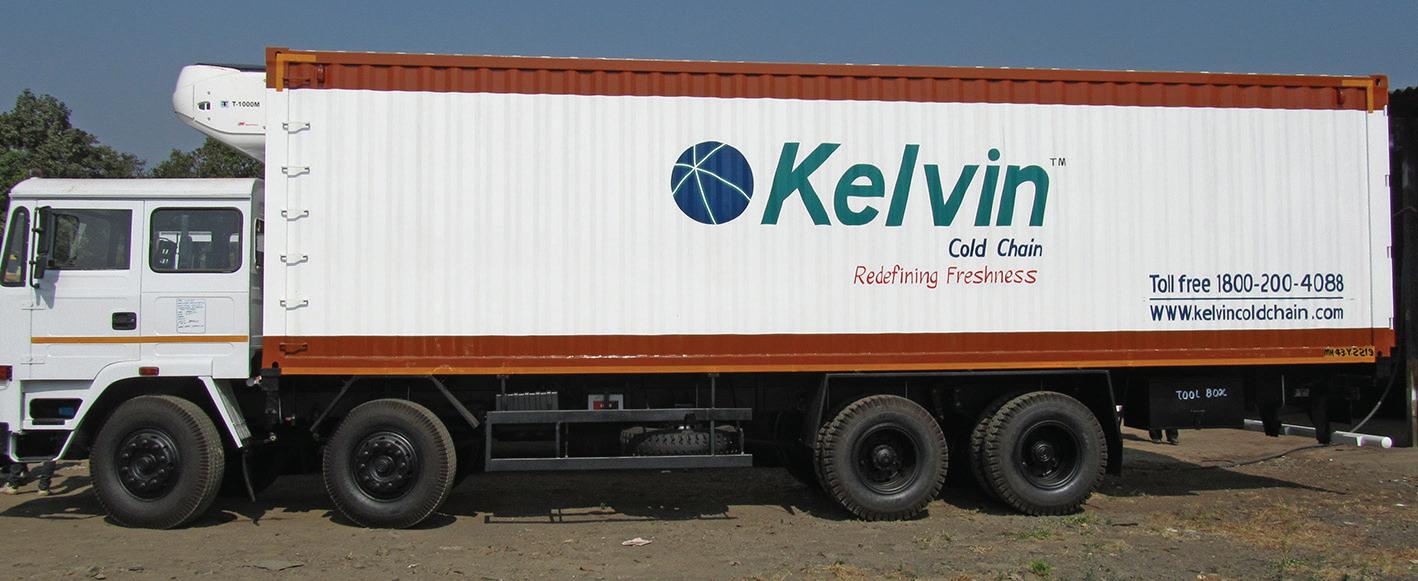
Solar power enabled Kelvin Cold Chain to pilot a more environmentally friendly business model.
In India, one of Sarona’s local partners invested in Kelvin Cold Chain, one of the top five temperature controlled cold chain logistics companies in the country. Kelvin fills a critical role in the food services industry based on the rising demand for frozen and processed food. Because of the nature of the business, the company relies heavily on having high quality drivers to deliver its products around the country. It provides them with training on safe driving and proper truck maintenance to prevent accidents. Most recently, Kelvin Cold Chain has established a solar powered cold room to provide better services, particularly in rural areas where electricity is in short supply. This will allow the company to pilot a new approach which provides cold chain services using an environmentally friendly business model and reduced electricity costs. It simultaneously will provide their clients with access to cold storage facilities where none existed previously.
Sarona holds investments in over 200 private companies around the world. Our goal is to deliver attractive financial returns to our investors but also to build up companies and communities where we invest. Our goal is to deliver strong ethical, social and environmental outcomes and while doing that our portfolio has handily outperformed the S&P 500.
How do we do that? Imagine running a company in India where most employees do not get vacations. If your company, however, provides employees with two weeks vacation, decent wages and workplace training, you are likely to move them from a 20-day loyalty mentality to a 20-year loyalty mentality. In our experience, progressive business
The goal is to improve companies’ ethics, social actions and envi- ronmental footprint.
Peace work
“Iam a peacemaker,” said the corporate leader. “I know how to bring people together and work out their differences.”
His listeners, surprised at first, realized he had a point. He was, after all, known for “the art of the deal” and often brokered agreements between opposing parties.
Jesus famously said, “Blessed are the peacemakers.” Could he have meant people in ordinary jobs? Could he have meant people in business?
Making peace doesn’t always mean stopping bullets from flying. “Slings and arrows” can take many forms. Workplace violence costs North American business $4 billion a year and produces several homicides each month. Could that be fertile ground for peacemakers?
Here are peacemaking examples (some identities protected) from the annals of workplace literature:
Manager. A company administrator creates a climate for peace by organizing work routines to ensure each person’s work is integrated with the work of others — not only to create synergy (which is profitable) but also to reduce strife by ensuring mutual respect. He keeps an eye on “triggers” of violence, like job loss or demotion; problems at home; romantic obsession with a coworker; substance abuse.
Receptionist. Answering the phone can sound routine, but what do you do with an angry caller? Sheila, who works in an electronics firm, gets at least one angry phone call a day. Relying on Proverbs 15:1 — “A soft answer turns away wrath” — she has learned how to defuse seething callers, like hearing them out, not leaving them on hold, not being defensive, not passing the buck, and making sure someone follows up.
Steel executive. Wayne Alderson faced a tense labor situation. He decided what he needed to do was not “correct” labor but to correct himself, to modify his own management style. He tried new tactics, like “walking with labor” and showing how he valued every employee. He managed to overcome a “contra” mentality. In the rough world of rustbelt steelworkers, he took the first steps to make peace.
Contractor. Conscious of the social impact of housing styles, a building contractor avoids taking on “sardine-can” projects because he knows that high apartment density can cause psychic trauma to local dwellers and lead to antisocial behavior. cepts us exactly as we are,” said Rogers. One can only imagine how many young viewers turned their faces in a new way through his influence.
Inspector. Marlin was employed as a provincial government inspector whose job was to mediate disputes between farmers and implement dealers. As a former farmer and dealer, he saw the issues from both sides. His goal was to get both parties talking to each other, and he did so with great success.
Attorney. Lawyers sometimes get a bum rap for being overly litigious, but one of our acquaintance helped develop, with his state bar association, a pledge that was signed by several hundred company owners who committed themselves to explore less litigious alternatives to resolving business disputes. The goal was to reduce battles between companies, consumers, contractors and competitors.
Negotiator. Walter works for a regulatory agency that most people have never heard of. He spends his days ironing out trade disputes between the United States and Canada. He thinks the work he does is paving the way for greater neighborliness. He sees himself as a grassroots peacemaker, but it’s at a level too remote for most people to understand.
Development workers can be effective peacemakers. While others resort to armed means of settling disputes, they seek a better way. Conflict transformation expert John Paul Lederach says better than retaliatory bombing is to “invest financially in development, education and a broad social agenda” in countries surrounding global hotspots. The greatest single pressure that can be put on terrorists is to remove the source of their hatred, he says. By strengthening relationships with whole regions, peoples and world views, “we weaken and eventually eliminate the soil where terror is born.” ◆
Sometimes peace can break out in the oddest places — like on the job.
Teacher. A woman who teaches new immigrants encouraged her students, who represented Christian, Muslim and Hindu faiths, to share with each other their religious customs and traditions at the same time that some of their people back home were killing each other. She didn’t manage to stop the killing, but she kept a good part of the hostility from taking new root in her community. The resulting bonds of friendship showed peacemaking in action.
TV host. Many grown-ups will remember their childhood devotion to the TV show Mister Rogers’ Neighborhood. Host Fred Rogers, the man in the cardigan sweater, was specially ordained for his role by the Presbyterian Church, which saw his television work as a form of ministry. Over the years, millions of children experienced God’s grace in a safe and inviting media “neighborhood” where unconditional acceptance reigned. “God, in his great mercy, ac-
A bold big bet on the poor
Annual Gates letter sees breakthroughs in fight against poverty
The annual “letter” from the Bill & Melinda Gates Foundation has become an anticipated highlight for people committed to battling poverty. For 15 years this couple, among the wealthiest in the world and with philanthropic reputations to match, has invested heavily in reducing inequity in Low Income Countries.
This year’s letter makes some bold claims for the future of that effort. Using language like “our big bet,” the Gateses predict that “the lives of people in poor countries will improve faster in the next 15 years than at any other time in history.”
While a handful of the worst-off countries will continue to struggle, “we think the next 15 years will see major breakthroughs for most people in poor countries. They will be living longer and in better health. They will
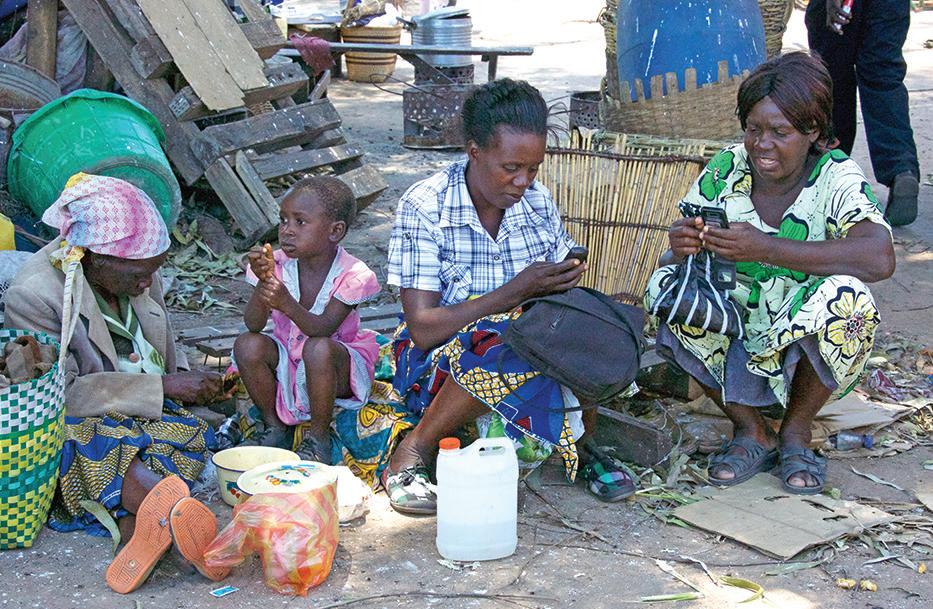
Photo by Steve Sugrim
In Zambia, MEDA has worked with a mobile money provider to enable the poor to participate in the financial system through savings, loans, money transfers and insurance.
have unprecedented opportunities to get an education, eat nutritious food, and benefit from mobile banking. These breakthroughs will be driven by innovation in technology — ranging from new vaccines and hardier crops to much cheaper smartphones and tablets — and by innovations that help deliver those things to more people.”
The bottom line is that “more parents in poor countries will know their children aren’t going to die,” they write.
The biggest breakthroughs they envision are in global health, farming, banking and education.
1. Child deaths will drop
The next 15 years will see “unprecedented progress in global health,” write Bill and Melinda Gates, citing various scourges being wiped out or drastically reduced. In 1990, they say, one in 10 children in the world died before the age of five. Today it is one in 20, and by 2030 they predict it will be one in 40.
This will be achieved as more countries gear up to immunize against diarrhea and pneumonia, two major killers of children, and as sanitation improves (such as better toilets for poor areas).
More mothers will give birth in proper health facilities instead of in village huts. Since 2005, for example, the proportion of mothers delivering at facilities in Rwanda has gone from 31 percent to 72 percent. “By continuing to make sure that the caregivers at those facilities are well-supplied and well-trained, we can take advantage of this global trend and make childbirth much safer for women around the world,” say the Gateses.
Polio can be eradicated from Africa along with diseases like guinea worm, elephantiasis, river blindness and blinding trachoma, as drugs to stop them become more widely available and are used more strategically thanks to digital maps that show where diseases are most prevalent.
The Gateses anticipate a vaccine that prevents people with malaria from spreading it to the mosquitoes that bite them and then infect others. “In 15 years, we’ll be poised to send malaria the way of smallpox and polio,” they say.
2. Africa will feed itself
Seven out of 10 people living in sub-Saharan Africa are farmers (in the U.S. the ratio is two out of a hundred) and yet Africa has to rely on imports and food aid to feed itself, say Bill and Melinda Gates. Moreover, African farmers get just a fraction of the yields of American farmers. Maize averages 30 bushels an acre in Africa, one fifth of the yield in the U.S.
With improved fertilizers and crops that yield better and resist drought and disease, African farmers are theoretically within reach of doubling their present yields. Greater productivity can make it possible to grow a greater variety of food and sell surpluses to supplement family diets with vegetables, eggs, milk and
Photo by Jessica Adach
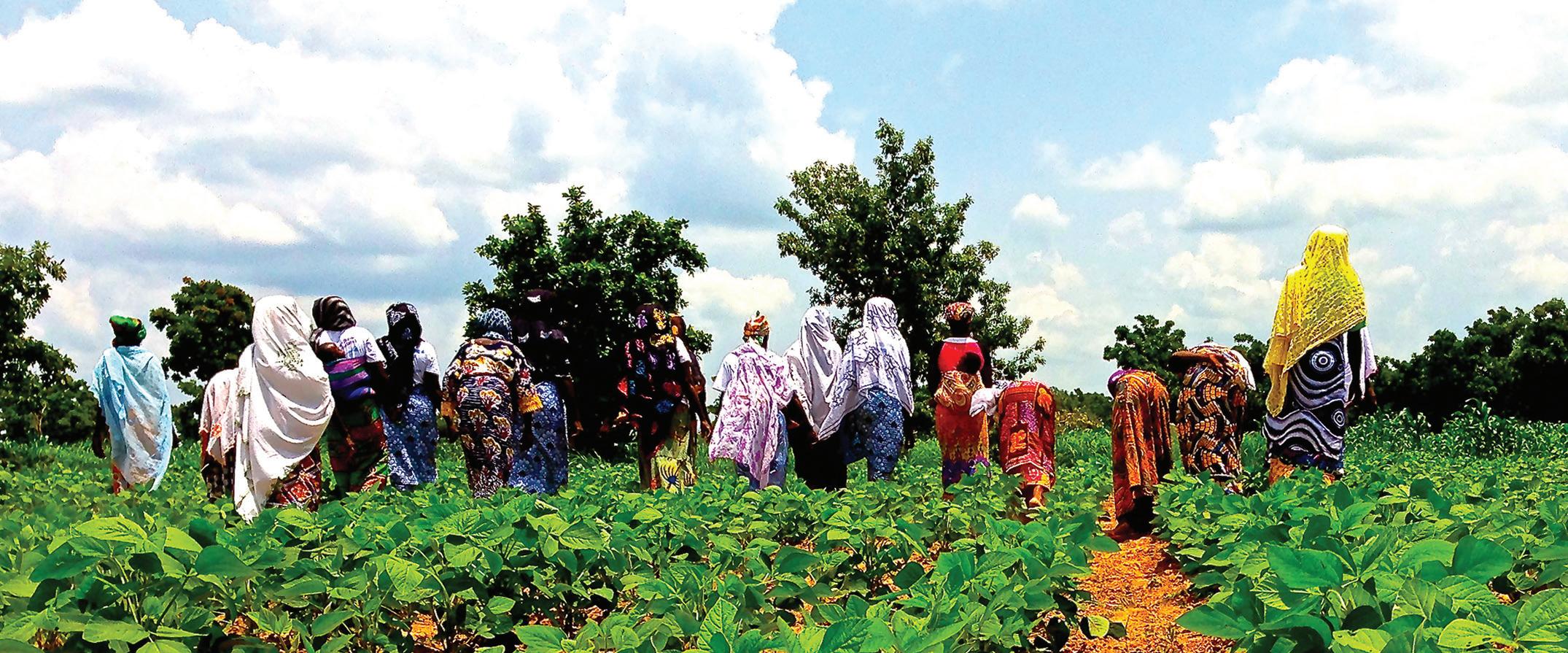
Women farmers in Ghana show off their new soybean crops in MEDA’s GROW project. Thousands of women farmers are bolstering family health by growing the nutritious crop, which also improves the soil.
meat. “We can deliver innovation and information to enough farmers in Africa to increase productivity there by 50 percent,” say the Gateses.
Other improvements are available through agricultural extension on what to plant, how to rotate crops to protect soil and how to get optimum prices. Right now this kind of information is aimed mostly at male farmers and their crops, even though women do at least half of the farm labor in Africa. This is beginning to change.
Population growth remains a challenge, but this also is changing as women become more empowered and have fewer children. Bigger weather variations (floods and droughts) will mean both more bumper crops and more poor harvests. Raising productivity and improving food storage are crucial to riding out the lean years. Another challenge is lack of infrastructure (like paved roads) which makes it difficult to move food to where it needs to go.
The Gateses are convinced that “by growing more varied and nutritious food and getting it to the people who need it at the right time, Africa can achieve food security by 2030.”
3. Mobile banking will transform lives
“Poor people face agonizing choices because they don’t have access to a bank to help them use their assets effectively,” say Bill and Melinda Gates. “If their savings are in the form of jewelry or livestock, for example, they can’t very well chip off tiny pieces to cover routine daily expenses.
“Instead, the poor use financial services that are extremely inefficient. They save by hiding cash around the house or buying commodities that lose value over time. When they send money to friends and relatives to help them through tough times, they either take a day off and deliver the cash themselves or trust someone else to do it for them.
“In the next 15 years, digital banking will give the poor more control over their assets and help them transform their lives.
“The key to this will be mobile phones. Already, in the developing countries with the right regulatory framework, people are storing money digitally on their phones and using their phones to make purchases, as if they were debit cards. By 2030, 2 billion people who don’t have a bank account today will be storing money and making payment with their phones. And by then, mobile money providers will be offering the full range of financial services, from interest-bearing savings accounts to credit to insurance.”
4. Software will revolutionize learning
Not surprisingly, coming from the man behind Microsoft, the annual Gates letter sees new software as a vital key to global education.
“Education is the best lever for giving children a chance to make the most of their lives,” say Bill and Melinda Gates. “Online courses will be a global asset, available to anyone with a smartphone or tablet.
“As high-speed cell networks grow and smartphones become as cheap as today’s voice-only phones, online education will flourish.
“The technology has already come a long way and will advance even more in the next 15 years. Before a child even starts primary school, she will be able to use her mom’s smartphone to learn her numbers and letters, giving her a big head start. Software will be able to see when she’s having trouble with the material and adjust for her pace. She will collaborate with teachers and other students in a much richer way.
“To make the most of these innovations, we need to close the gender gap. In Africa, women are 24 percent less likely than men to own a cell phone; in South Asia, it’s 37 percent. This is especially important because when a young woman gets an education, it has a powerful ripple effect. As an adult, she’ll earn more money. If she has children, they will be twice as likely to live past the age of five. Her daughters will be twice as likely to go to school themselves. Online education will open up new opportunities for girls.” ◆
To see how MEDA is embracing these opportunities, go to www.meda.org and follow the links for agriculture, health and women. Also, type “mobile banking” into the Search box.


